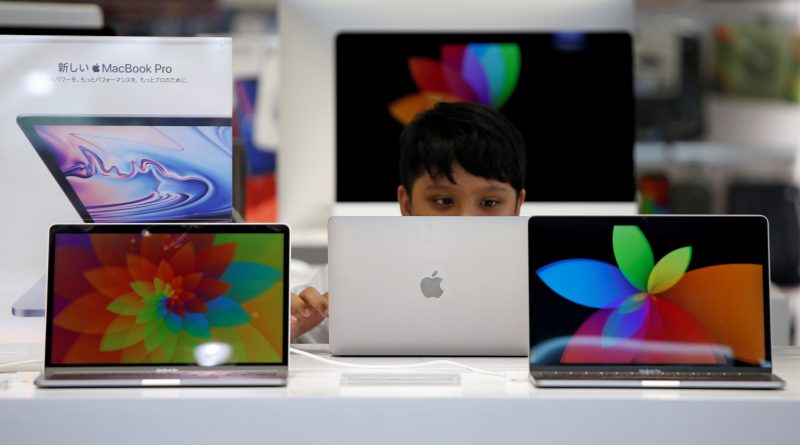India mandates licensing for laptop, tablet imports in blow to Apple, Samsung
New Delhi (Reuters) – India on Thursday said it will impose a licensing requirement for imports of laptops, tablets and personal computers with immediate effect, a move that could hit hard the likes of Apple, Dell and Samsung and force them to boost local manufacturing.
Current regulations in India allow companies to import laptops freely, but the new rule mandates a special licence for these products similar to restrictions India imposed in 2020 for inbound TV shipments.
Industry executives said a licensing regime would mean prolonged wait times for each new model they launch, and would come just ahead of a festive season in India when sales typically surge.
The government in its notification gave no reason for the move, but Prime Minister Narendra Modi’s government has been promoting local manufacturing and discouraging imports under his “Make in India” plan.
India’s electronics imports, which include laptops, tablets and personal computers, stood at $19.7 billion in the April to June period, up 6.25% year-on-year.
Research firm Counterpoint estimates India’s laptop and personal computer market to be worth $8 billion annually, with two third of those imported.
The intent seems to be “substitution of certain goods that are imported heavily”, said Emkay Global economist Madhavi Arora.
Apple (AAPL.O), Dell (DELL.N) and Samsung (005930.KS) did not immediately respond to Reuters’ requests for comment. They, along with Acer, LG Electronics (066570.KS), Lenovo (0992.HK) and HP Inc (HPQ.N), are some of the key sellers of laptops in the Indian market.
A government source, who did not want to be named, told reporters shipments that have been ordered will be allowed without licences until Aug. 31.
The move is expected to benefit contract manufacturers like Dixon Technologies (DIXO.NS), whose shares rose more than 7% on the news.
“The move’s spirit is to push manufacturing to India. It’s not a nudge, it’s a push,” said Ali Akhtar Jafri, former director general at electronics industry body MAIT.
India has extended a deadline for companies to apply for a $2 billion incentive scheme to attract investments in IT hardware manufacturing.
The scheme is key to India’s ambitions to become a powerhouse in the global electronics supply chain, with the country targeting annual production worth $300 billion by 2026.
The country has imposed high tariffs in the past on products like mobile phones to catalyze domestic output.
Security Concerns
Besides boosting local manufacturing, the government move is aimed at curbing supplies from China, as it has security concerns from such products, a second government source said.
The restriction will help India to import such hardware only from “trusted partners”, the first government source added.
Half of India’s restricted items are shipped from China, with whom Delhi’s relationship has soured since border clashes in 2020, leading to several anti-China steps to curb investment and trade from India’s neighbour.



